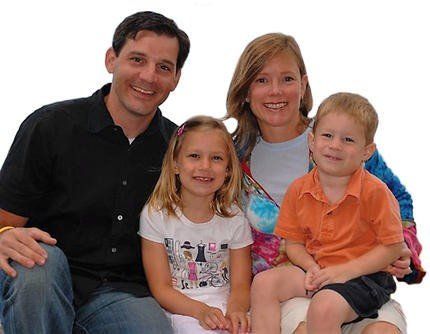Since feminism has become a non-negotiable creed, ‘sexism’ is now seen as one of the major sins left in modern society. To call someone a sexist is to accuse him of being a boorish dinosaur who has yet to catch up with the progressive ethics of our day. We have come a long way from the famous (or notorious!) work of the sixteenth-century Scottish Reformer John Knox, directed against Mary Tudor: The first Trumpet Blast Against the Monstrous Regiment of Women. Indeed, the coercive utopians who run our modern parliaments have passed laws against any discrimination on the grounds of sex. The feminist Kate Millet asserts that ‘The best medical research points to the conclusion that sexual stereotypes have no basis in biology’. The received wisdom now is that gender rôles are almost completely interchangeable.
Status and function
Against this, the Bible teaches equality of status — men and women are both created in God’s image (Genesis 1:27; 9:6), and male and female believers are equally redeemed in Christ (Galatians 3:28). However, this equality of status or worth does not mean that there is equality of function. On the contrary, ‘the head of woman is man, and the head of Christ is God’ (1 Corinthians 11:3). Christ is one with the Father in essence or status (John 10:30), but not in function. It is always the Father who sends the Son, never the reverse. Similarly, the equality of essence between male and female does not necessarily mean equality of function — the gender rôles are not interchangeable in the doctrinaire way that modern feminists think.

Implications
This has implications for home, church and society. In our homes, loving headship is to be exercised by the father and husband (Ephesians 5:21-33; Colossians 3:18-19). This submission is not absolute — but it is real. It is even to be exercised in the situation where the husband is an unbeliever (1 Peter 3:1). In the church, only suitable males can teach and rule as elders or presbyters (1 Timothy 2:11-14; 1 Corinthians 14:33-35). Women can teach children (Proverbs 1:8; 6:20), other women (Titus 2:3-4), men in an unofficial capacity (Acts 18:26), and the whole covenant community in an extraordinary capacity (e.g. Judges 4:4; 2 Kings 22:14; Acts 21:9). But the ordinary office of presbyter (elder/overseer) is not open to women.
Women in society
So far as women’s place in society is concerned, the New Testament does not specifically address this issue. But Christians might reasonably object to some of the more outlandish feminist practices found today. ‘Affirmative Action’ is surely a destructive and patronising approach to the rôle of women in the world. Similarly, not much can be said in favour of the practice of sending women soldiers to the front line of battle. In Australia the Labour Party recently passed a motion declaring that within a few years 35% of all winnable seats were to be contested by women. One might have been more impressed by a motion that 35% of winnable seats would be contested by intelligent and moral human beings.

Consequences
Granted all this, what are the consequences of the modern drive to eliminate all sexism? There are a least five obvious consequences.
1. The Bible’s authority is undermined. Listen to how professing evangelicals squirm when they try to explain away the obvious meaning of Scripture. Kevin Giles, for example, is forced to claim that ‘The Bible is authoritative in matters of faith and conduct but not necessarily in science, or on how to order social relations’. Not only does Genesis 1-11 go, but doesn’t this also cover the command to love one’s neighbour as oneself?
2. Our homes lose their God-given authority structure. If wives do not have to be subject to their husbands, is it necessary that children obey their parents? It requires little perception to see that there is a terrible dislocation in many, indeed most, homes today.
3. Our churches are governed in a way that does not please God. If God is against women presbyters, it is serious sin for the church to allow them. The weakness of the church today is not primarily due to sociological factors but to the fact that she has grieved the Holy Spirit.
4. Gender interchangeability will lead to homosexuality. There is a logic in this progression — if the rôles can be interchanged, why not in the sexual area? Historically, it is precisely what has happened — the church, which debates women’s ordination today will be debating the ordination of homosexuals tomorrow.
5. Our perception of God will be radically changed. Back in 1948, C. S. Lewis predicted that the ordination of women would lead to a different view of God. Fifty years later we see how right Lewis was. William Oddie — an Anglo-Catholic who later became a Roman Catholic — catalogued this in an important book What Will Happen to God? (SPCK, 1984). As the feminist Mary Daly put it: ‘Since “God” is Male, the male is God’. Consistent feminists object to the fact that God is called Father, and that the incarnation took place in Christ as a male. In April 1998, for example, there was a gathering in St Paul, Minnesota for the Re-imagining Revival. Supposed Christians prayed to Sophia as the ‘Goddess of Wisdom’. Churches which use liturgies are under pressure to adopt neutral genderless terms when referring to God. It is not uncommon to hear God addressed as ‘Our Father/Mother’, and Jesus (if he rates a mention at all) is called ‘the Child of God’.
In short, feminism is not a minor issue.









